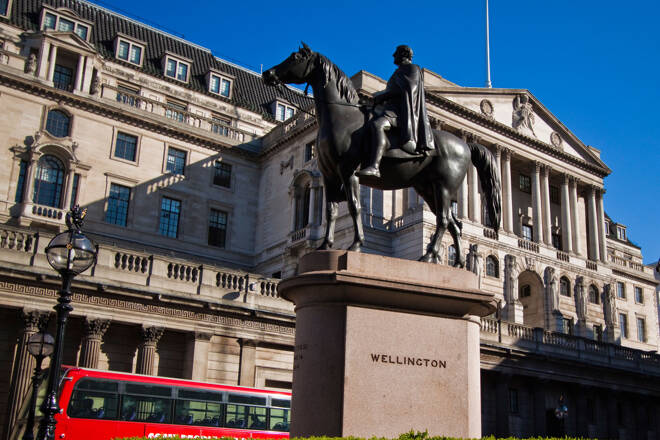Advertisement
Advertisement
Bank of England Raises Interest Rates to Highest Level in Over a Decade Amid Inflation Concerns
By:
The Bank of England Monetary Policy Committee voted 7-2 in favor of the 25 basis point increase, bringing the Bank rate to 4.25%.
Key Takeaways
- Bank of England raised interest rates to 4.25%, the highest level since 2008, to address concerns about high inflation and banking system stability.
- The decision was approved by a 7-2 vote by the Monetary Policy Committee and was widely expected due to unexpected annual inflation increase to 10.4% in February.
- BoE expressed a positive outlook on the economy and predicted a GDP increase of about 0.3% in the years to come, but remained worried about the labor market’s strength and its impact on inflation.
- BoE maintained its stance on rate hikes but warned of the potential need for further tightening if there were any signs of more persistent inflationary pressures.
Overview
On Thursday, the Bank of England raised interest rates to their highest level since 2008 in response to ongoing concerns about high inflation and the stability of the banking system.
The decision to raise the Bank rate by 25 basis points to 4.25% was approved by a vote of 7-2 by the Monetary Policy Committee.
This move was widely expected following the release of official data on Wednesday showing an unexpected annual increase in U.K. inflation to 10.4% in February.
The decision also marked the 11th consecutive rise in borrowing costs since December 2021.
Bank of England Expresses Positive Outlook on Economy and Predicts GDP Increase
Although this was the smallest increase since June last year, the BoE expressed a more positive outlook towards the country’s slow economic growth.
The BoE predicts that measures included in Jeremy Hunt’s budget would quicken the sluggish economy and increase gross domestic product (GDP) by about 0.3% in the years to come.
The Bank expects employment growth to be stronger than previously forecast, but remains worried about the labor market’s strength and its impact on inflation.
Despite recent cooling, pay growth is still running far above the historical average, and there is a shortage of workers. The BoE also expects wages to rise slightly less than previously forecast as inflation expectations decrease.
BoE Warns of Potential Need for Further Tightening Amid Inflation Concerns
The BoE kept unchanged its message that it saw less urgency about maintaining its fast run of rate hikes. However, it warned that if there were any signs of more persistent inflationary pressures, further monetary policy tightening would be necessary.
The BoE Governor, Andrew Bailey, and his colleagues, last month dropped language stating that they were ready to act forcefully if the outlook suggested persistent inflationary pressures.
For a look at all of today’s economic events, check out our economic calendar.
About the Author
James Hyerczykauthor
James Hyerczyk is a U.S. based seasoned technical analyst and educator with over 40 years of experience in market analysis and trading, specializing in chart patterns and price movement. He is the author of two books on technical analysis and has a background in both futures and stock markets.
Advertisement
